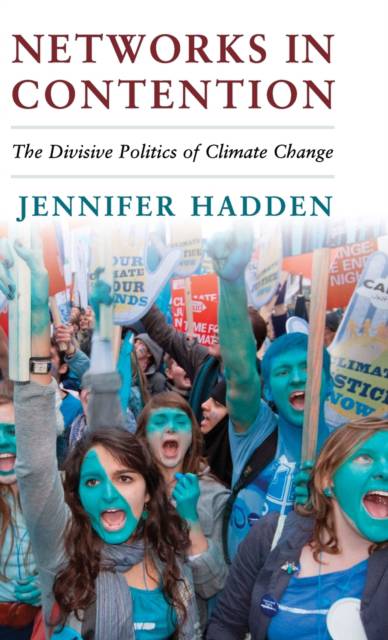
Door een staking bij bpost kan je online bestelling op dit moment iets langer onderweg zijn dan voorzien. Dringend iets nodig? Onze winkels ontvangen jou met open armen!
- Afhalen na 1 uur in een winkel met voorraad
- Gratis thuislevering in België vanaf € 30
- Ruim aanbod met 7 miljoen producten
Door een staking bij bpost kan je online bestelling op dit moment iets langer onderweg zijn dan voorzien. Dringend iets nodig? Onze winkels ontvangen jou met open armen!
- Afhalen na 1 uur in een winkel met voorraad
- Gratis thuislevering in België vanaf € 30
- Ruim aanbod met 7 miljoen producten
Zoeken
€ 155,95
+ 311 punten
Uitvoering
Omschrijving
How do civil society organizations mobilize on climate change? Why do they choose certain strategies over others? What are the consequences of these choices? Networks in Contention examines how the interactions between different organizations within the international climate change movement shape strategic decisions and the kinds of outcomes organizations are able to achieve. First, it documents how and why cleavages emerged in this once-unified movement around the time of the 2009 Copenhagen Summit. Second, it shows how an organization's position in the movement's network has a large influence on the tactics it adopts. Finally, it demonstrates how the development of new strategies within this network has influenced the trajectory of global climate politics. The book establishes the ways in which networks are consequential for civil society groups, exploring how these actors can become more effective and suggesting lessons for the future coordination of activism.
Specificaties
Betrokkenen
- Auteur(s):
- Uitgeverij:
Inhoud
- Aantal bladzijden:
- 239
- Taal:
- Engels
- Reeks:
Eigenschappen
- Productcode (EAN):
- 9781107089587
- Verschijningsdatum:
- 9/03/2015
- Uitvoering:
- Hardcover
- Formaat:
- Genaaid
- Afmetingen:
- 140 mm x 216 mm
- Gewicht:
- 362 g

Alleen bij Standaard Boekhandel
+ 311 punten op je klantenkaart van Standaard Boekhandel
Beoordelingen
We publiceren alleen reviews die voldoen aan de voorwaarden voor reviews. Bekijk onze voorwaarden voor reviews.











